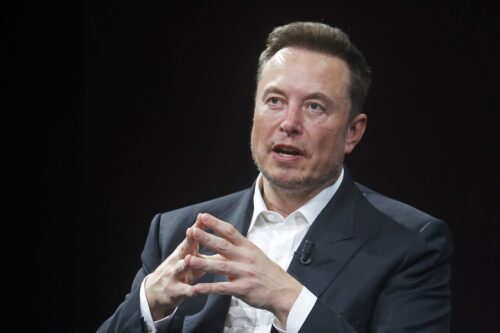Rama Krishna Sangem
New York Times reporters Reid J. Epstein and Theodore Schleifer wrote a story saying that “Launching a new national political party in the United States may be more difficult than sending a man to Mars”. This is how the mainstream US media reacted to Musk’s new party.
American media hasn’t given much significance to Elon Musk’s just launched America Party. Though the media, including print, TV and digital, of course, paid attention to the announcement of the party, but almost expressed similar view – that Musk might not make big impact in the US politics in near future.
Some journalists and analysts have dismissed it a local affair, winning a few seats in some state legislature, in the congress and even a governor or two in the next two years, if at all he sustains it that far. Some commentators felt that Musk had not clear idea about how American political system works.
Washington Post commented that Musk has created supply for which he needs to find demand. That means, he has launched a new political party, third in the two party system dominated America, but he will have to find supporters – other than he and his close followers on X. This is a big task now before him.
Richest man, biggest political donor
Musk, the world’s richest man, who last year was the nation’s biggest known political donor, now says that he is trying to do both. But while the effort to achieve interplanetary travel has made slow progress for over 20 years, the past several decades of American politics are littered with abandoned attempts to disrupt the two-party system.
It remains to be seen how serious Mr. Musk is about the new political project, and whether it will evolve from musings on his social-media platform to a fact of real life. While he declared on Saturday that “Today, the America Party is formed,” so far he has yet to register it with the Federal Election Commission, NYT story said. .
As with many of his tweet-length proclamations, Mr. Musk’s plans for the new party are opaque. His private conversations about it so far have been conceptual and not focused on the details of what it would take to bring it to fruition, according to two people briefed on those talks. Some advisers to Mr. Musk who have also been involved in these early talks, however, appear more focused on those details and are soliciting more feedback.
Elaborate process in some states
Congressional candidates for a theoretical new party face a labyrinthine system of signature requirements that vary from state to state. The most restrictive laws are in Georgia, where candidates outside the two major parties must gather 27,000 signatures from their district. This hurdle has kept third-party congressional candidates from being on a general election ballot since the law was enacted in 1943, according to Richard Winger, the publisher of Ballot Access News, which has tracked election laws since 1985.
Even the name America Party could trip up Mr. Musk. New York State, for instance, has a law that forbids the word American — or any variant of it — to be on the ballot as part of a party name, according to the Election Law Blog.
Qualifying a slate of 435 House candidates, were Musk to take his idea national, would require about three times as many petition signatures as putting a presidential candidate on the ballot in every state and could cost more than $50 million just in signature gathering, Mr. Winger said, said the NYT story.
Even TV channels like CNN and Fox News have been running shows on the impact of the party, but not much hope is evinced by the participants while some termed at the best an attempt to provide an alternative to the Americans vexed with the two major parties – Democrats and Republicans. So, Musk has a long journey to prove himself!


